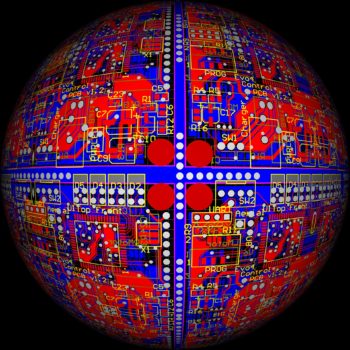Rise of the Robots: How Artificial Intelligence & Machine Learning Will Reshape Entire Industries
by Lindsay Rowntree on 18th May 2017 in News

As the rise of massively distributed computing power, decreased cost of data storage, and a proliferation of open-source frameworks turn conventional computing paradigms on their head, new and lucrative opportunities are being created to develop innovative artificial intelligence applications, writes Ed Chater, COO, Adbrain.
Research from Accenture suggests that AI technologies could double the economic growth rate in 12 developed countries and boost labor productivity up to 40% by 2035. The increasing importance of AI, signalled by strategic acquisitions by Google, Amazon, Apple, and Microsoft, has significant implications for businesses across all sectors and verticals. AI has the potential to transform industries as diverse as healthcare, finance, insurance, and entertainment.
The term 'artificial intelligence' doesn’t refer to a single technology, but rather a group of technologies. Natural language processing (or NLP), for instance, focuses on improving interactions between computers and human or natural languages. It’s natural language processing that is at work in technologies such as Alexa, Siri, and Google Now. When you ask Google Now “How tall is the Eiffel Tower?” it is natural language processing that interprets that the Eiffel Tower is an object with the property of height and that you would like to know that property in metres. Machine Learning, another subset of AI, focuses on building computer programs that can determine 'patterns' in data. A machine learning application, for instance, might be able to determine if a house constructed on a floodplain is likely to flood based on past historical weather trends, or, more prosaically, recommend a movie to watch on Netflix.

Ed Chater, COO, Adbrain
Artificial intelligence will radically transform industries including healthcare, finance, insurance, and entertainment, and have a profound impact on much more. New and innovative startups will emerge, and incumbents will be disrupted. There isn’t likely to be an industry which goes untransformed. We’re on the cusp of something transformative. In healthcare, the technology already exists to sequence individual genomes. When this can be compared to a vast database, doctors will be able to predict the probability that you will contract a particular disease and offer treatment tailored to your genetic makeup when they appear.
In finance, over the next decade, we can expect to see AI financial advisors increasingly replace the role humans currently play. An automated financial advisor could perform an analysis of your social media posts and determine which companies best align with your values and risk profile. And then continue to monitor your portfolio based on analysis of market trends. Services like Wealthfront now offer automated financial analysis and services only previously accessible to those with millions of dollars in assets.
Sensor-based devices are enabling insurance companies to provide new services to customers. Insurer AIG recently partnered with one of their clients, a car rental company, to create an artificial intelligence pilot to see if it could incentivise smooth driving; and find out whether smooth driving was indicative of ‘safe driving.' In the test, sensors in the client’s fleet of vehicles collected data in real time to help develop a ‘smooth driving score’ for each driver, creating a contest that helped reward the smoothest of drivers. This game helped significantly reduce the number of claims by incentivising renters to drive more safely. Sensor data and the IoT will play an especially important role for insurance companies. The more sensor data that the insurance industry has access to, the more the industry will be able to automate; and the more the insurance industry can rely on AI, the more it can change.
Tinder’s Sean Rad has suggested that AI could even revolutionise dating. In a recent Forbes profile, Rad hypothesised a scenario where Tinder may be able to predict (without much input from you) the people that you’re likely be interested in, and even go as far as to organise the date for you. Instead of going through the currently laborious process of swiping, matching, and striking up the same conversation again and again, you might have a conversation with a Tinder ‘bot’ who was able to determine that you’re likely to find a potential partner attractive, decide that you have common interests, and suggest a gig for you to hang out at.
With many of the technologies underpinning AI (compute, data storage, learning algorithms) becoming commoditised, the focus is shifting from excitement around the 'tech' potential of machine learning to practitioners actually building applications and putting them into production. As artificial intelligence programs become less expensive to produce, and easier to implement, there is a lucrative opportunity for startups and incumbents to develop billion-dollar businesses and reshape entire industries with AI.








Follow ExchangeWire